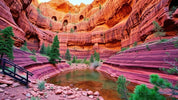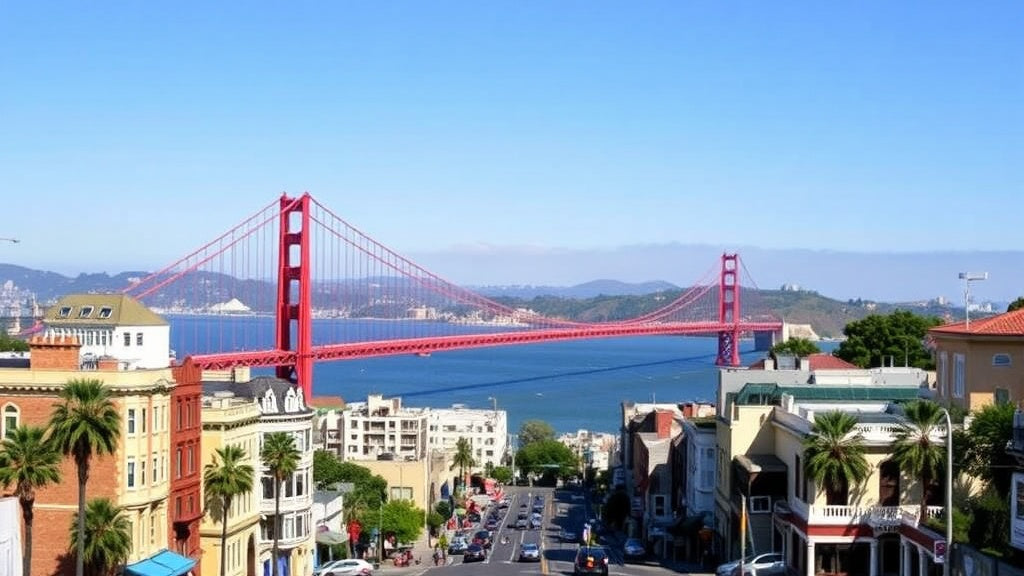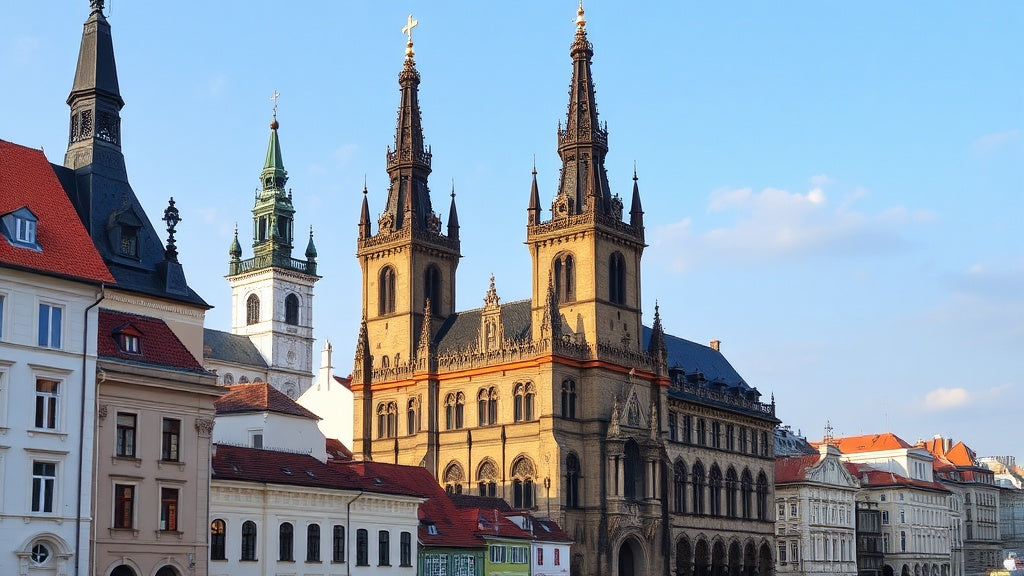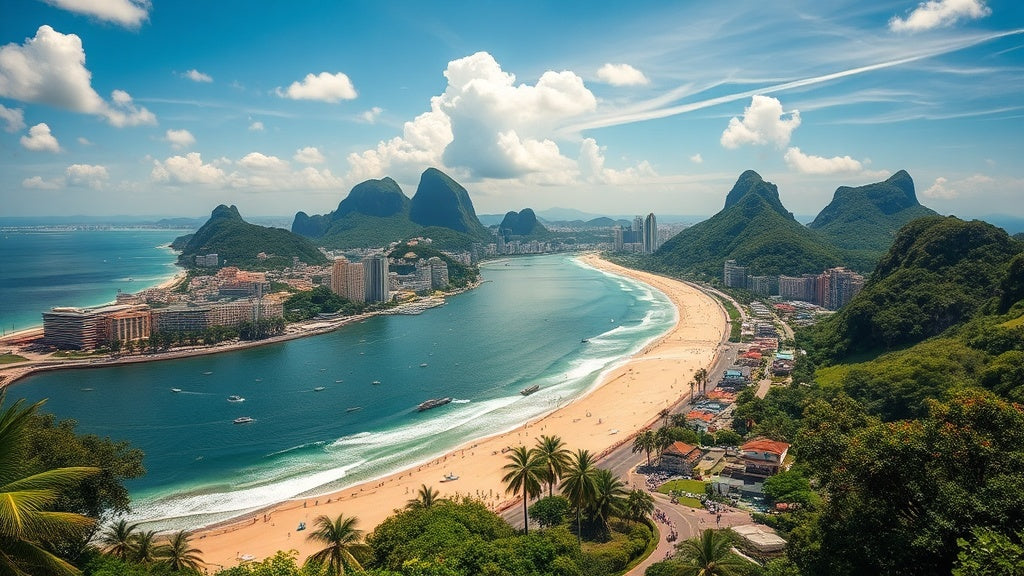
Top 10 Must-Visit Destinations in Utah for Nature Lovers
, by Unboxify, 7 min reading time

, by Unboxify, 7 min reading time
With five national parks, 43 state parks, and vast areas of breathtaking wilderness, Utah is one of the most popular states in the country for tourism. Along with what is recognized as the best snow on earth, visitors to Utah are also able to enjoy outdoor recreation, scenic vistas, and world-class shopping and dining. Thanks to Utah’s ideal location, this lovely state presents the best of the Desert Southwest and the Rocky Mountains. Here’s a look at the best places to visit in Utah:
A reservoir situated on the Colorado River on the border between Arizona and Utah, Lake Powell is the second-largest manmade lake in the United States. Attracting approximately 2 million visitors per year, the lake boasts an array of landmarks, including Rainbow Bridge, which is one of the largest natural bridges in the world. There are also several canyons that are home to Anasazi ruins. The lake has also served as a shooting location for dozens of television series and films, including both the 1968 and 2001 versions of Planet of the Apes.
Situated in the southeastern part of the Great Salt Lake, Antelope Island State Park provides boundless options for recreation. Visitors will find an abundant wildlife population in the park, including one of the largest free-roaming herds of bison in the country. The park is also home to mule deer, bighorn sheep, and a variety of waterfowl. While Antelope Island is particularly known for its wildlife, there are also numerous events and activities to enjoy, including an annual balloon festival. Cycling and hiking are also popular activities in the park.
Situated in eastern Utah, Moab is one of the most popular towns in the state and attracts numerous tourists each year. Most of the visitors coming to Moab also make their way over to nearby Canyonlands and Arches National Parks. Moab also serves as a base for the many mountain bikers who travel to the area to take advantage of the numerous network of nearby trails. Other activities include whitewater rafting on the Colorado River, canoeing on the Green River, mountain rock climbing, base jumping, hiking, and extreme 4×4.
Located in northern Utah is Park City. This former mining town rebounded during the 1980s and has rapidly become a popular tourist destination thanks to the presence of three major ski resorts nearby. Deer Valley Resort, Canyons Resort, and Park City Mountain Resort all provide excellent opportunities for snowboarding and skiing. Park City has also become a major hub for the largest independent film festival in the United States, the Sundance Film Festival. Just outside the city are reservoirs, forests, hot springs, and biking and hiking trails.
Salt Lake City is not only the largest city in Utah but also the capital. It’s probably best known as the home of the Mormon Church and the 2002 Winter Olympics. Situated between two mountain ranges, Salt Lake City boasts incredible beauty. Here, visitors will find an array of attractions, including the Grand America Hotel, which is home to some of the most expensive mirrors and chandeliers in the world. Other popular attractions in Salt Lake City include The Living Planet Aquarium, Utah Museum of Contemporary Art, Temple Square, and a host of parks.
Situated in south-central Utah, Capitol Reef National Park is less crowded as the other national parks in the state but just as scenic. While the park is 100 miles in length, it is fairly narrow. Featuring colorful canyons, monoliths, buttes, and ridges, the park is known for the particularly rugged line of white cliffs and domes that presented a significant barrier to travel until the early 1960s. Inside the park, visitors are able to enjoy a spacious campground and the Burr Trail Scenic Backway. The park boasts a range of activities, including horseback riding, hiking, and driving tours. Orchards that were originally planted by Mormon pioneers are still maintained in the park.
Located in southeastern Utah, this National Park is situated near the town of Moab. Canyonlands offers visitors the preservation of a vast colorful landscape featuring innumerable canyons, buttes, and mesas alongside the Green River and Colorado River. The park is divided into four districts with their own distinctive character: the Needles, the Maze, the Island in the Sky, and the rivers. With so many varied landscapes, the park is considered one of the most unique places to visit in Utah.
Another piece of nature’s artwork found in Utah, the Arches National Park is known for its inspiring natural arches. Salt beds deposited 300 million years ago from the receding ocean helped form the more than 2000 arches in the park, including Delicate Arch, one of the state’s most famous icons. Towering spires, fins, and balanced rocks complement the arches, creating a remarkable scenery. The extraordinary features of the park are highlighted by a striking environment of contrasting colors, landforms, and textures.
Situated in southwestern Utah, Bryce Canyon National Park features a collection of massive natural amphitheaters, and not a canyon despite the name. Visitors to the park are able to enjoy a spectacular kaleidoscope of varied colored rocks. Originally settled by Mormon pioneers during the mid-19th century, Bryce Canyon became a national monument in 1923 and was later designated as a national park. The park features tremendous biodiversity and is home to more than 400 native species of plants in three life zones based on elevation. Visitors to the park are able to enjoy multiple viewpoints looking out over the amphitheaters and various hiking trails.
Even among America’s National Parks, few can match the stunning beauty of Zion National Park. Situated near Springdale in southern Utah, the park protects a series of incredible rock formations and high sandstone cliffs, and is a favorite spot for hiking, canyoneering, and climbing. Unlike many other parks in the American Southwest, where visitors look down from the rim of a canyon, visitors to Zion walk on the canyon floor and look up. In addition to the magnificent monoliths and cliffs, the park is known for its desert landscape of sandstone canyons, mesas, and high plateaus.






